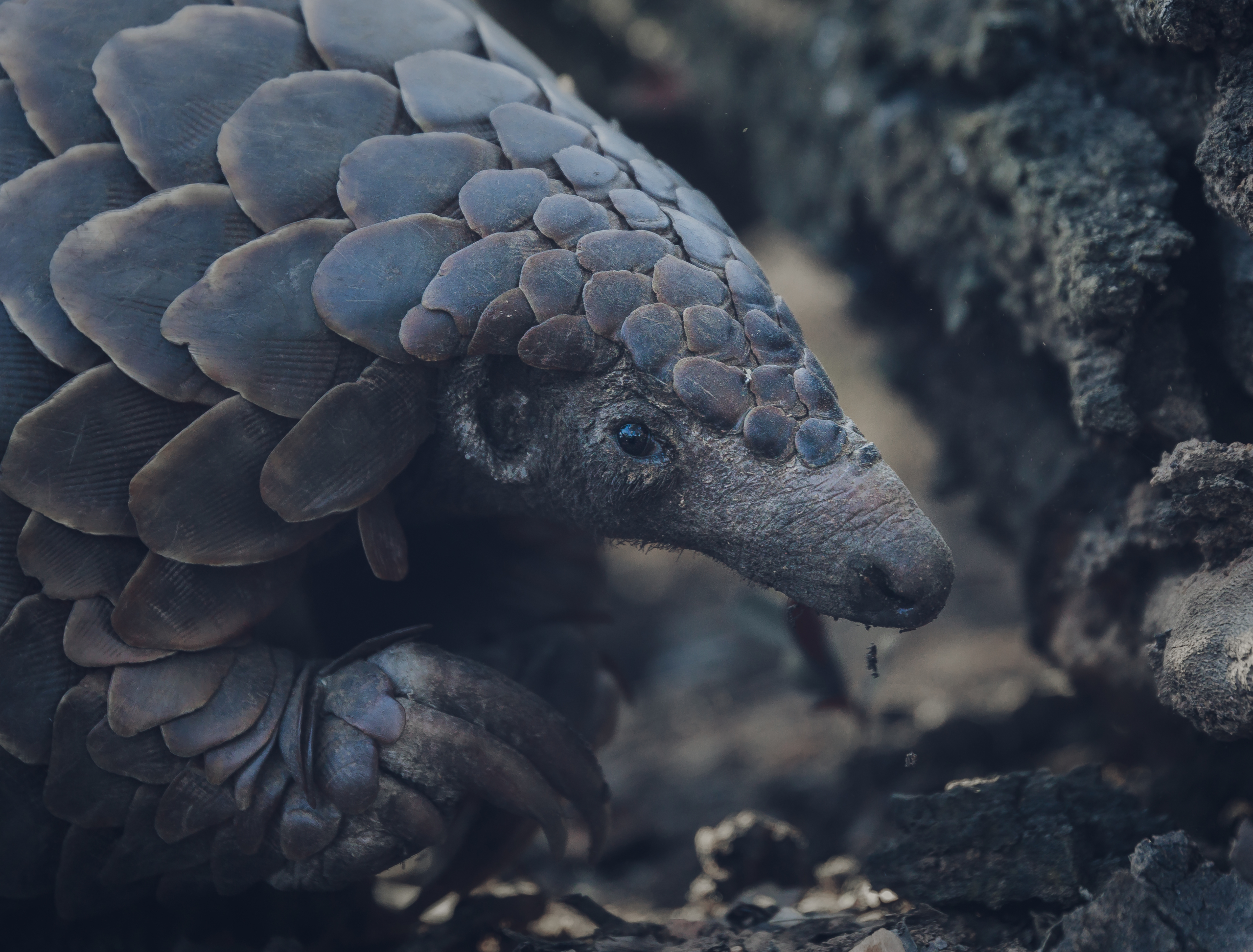Pangolins are not only unique in appearance, but also very reclusive. A sighting of a pangolin in the wild is a rare experience and for this reason, many of us know very little about this species. © Gareth Thomas
Interview by Rory Francis
Pangolin – the venerable ‘wise old man’ of the African bush – is said to be a totem of good luck and the bringer of rain. This enigmatic creature that holds the secrets of 85 million years of evolution is now the most poached mammal on the planet. – African Pangolin Working Group
The African Pangolin Working Group is a multidimensional organisation at the forefront of protecting the four African pangolin species. APWG conducts a multitude of efforts, including retrieving pangolins from the illegal wildlife trade, pangolin rehabilitation, research, and education. Professor Ray Jansen is the chairman of the organisation and a member of the ICUN Species Survival Commission Pangolin Specialist Group. He is highly educated on a diverse range of research interests, holds a Ph.D. in Zoology, and is on a mission to conserve Africa’s Pangolins.
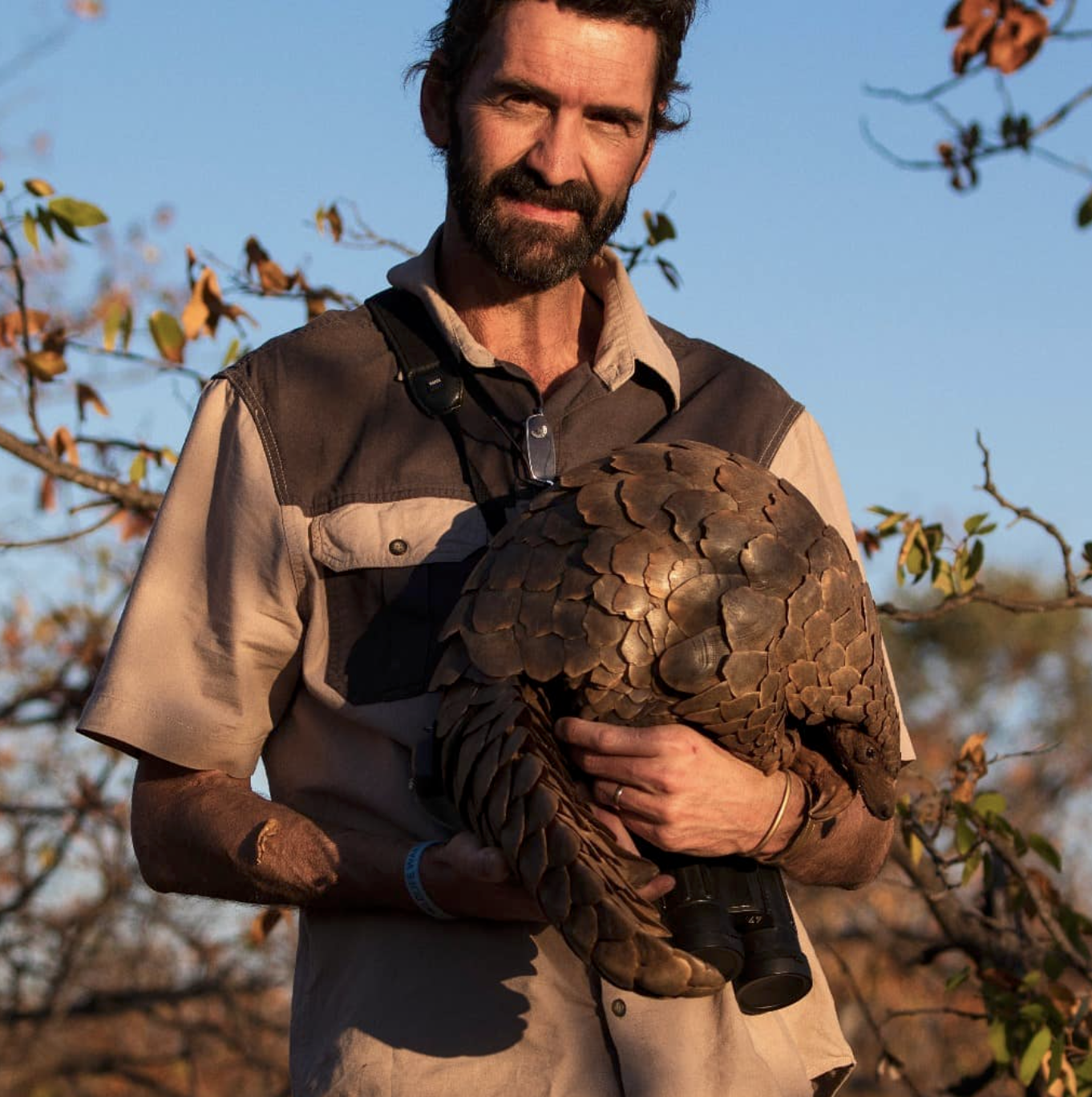
Professor Ray Jansen is the Chairman of the African Pangolin Working Group and is working to protect the four African Pangolin species. © Gareth Thomas
How did your passion for protecting wildlife and, in particular, Pangolins begin?
I’ve been passionate about wildlife and the African savannahs since I was a young boy. I was introduced to pangolins in 2009 when a past student requested me to supervise his master’s study on the Temminck’s pangolin in the Kalahari. I was immediately bewitched by these mysterious creatures. At this time, I realised how much trouble they are in and subsequently founded the African Pangolin Working Group; the first organisation of its kind directly focused on hands-on work in reducing the illegal trafficking of pangolins.
Two of the four African species were recently reclassified from ‘Vulnerable’ to ‘Endangered’ why is it so crucial that pangolins are protected?
The only direct threat to the entire pangolin Order (the Pholidota) is persecution at man’s hands. Pangolins are the most trafficked mammals in the world, and for this reason alone, it is our responsibility to combat this illegal trade and to reverse their declining numbers.
Why are Pangolins poached so heavily, and how valuable are they?
Pangolin scales are ground up into a powder and used in various cultural medical and spiritual remedies in Asia, particularly China. I have identified 60 different commercial products that hold this powder as an ingredient in China, and these products are manufactured and sold at an industrial level in vast quantities. In 2019 alone, I recorded more than 97 tons of pangolin scales leaving the African continent destined for Asia, equivalent to more than 150,000 African pangolins. If this volume of trade continues unabated, all eight species may be declared extinct within the next two decades. Females only have one pup a year, so the recruitment to natural pangolin populations is very low, and they will not survive this onslaught.
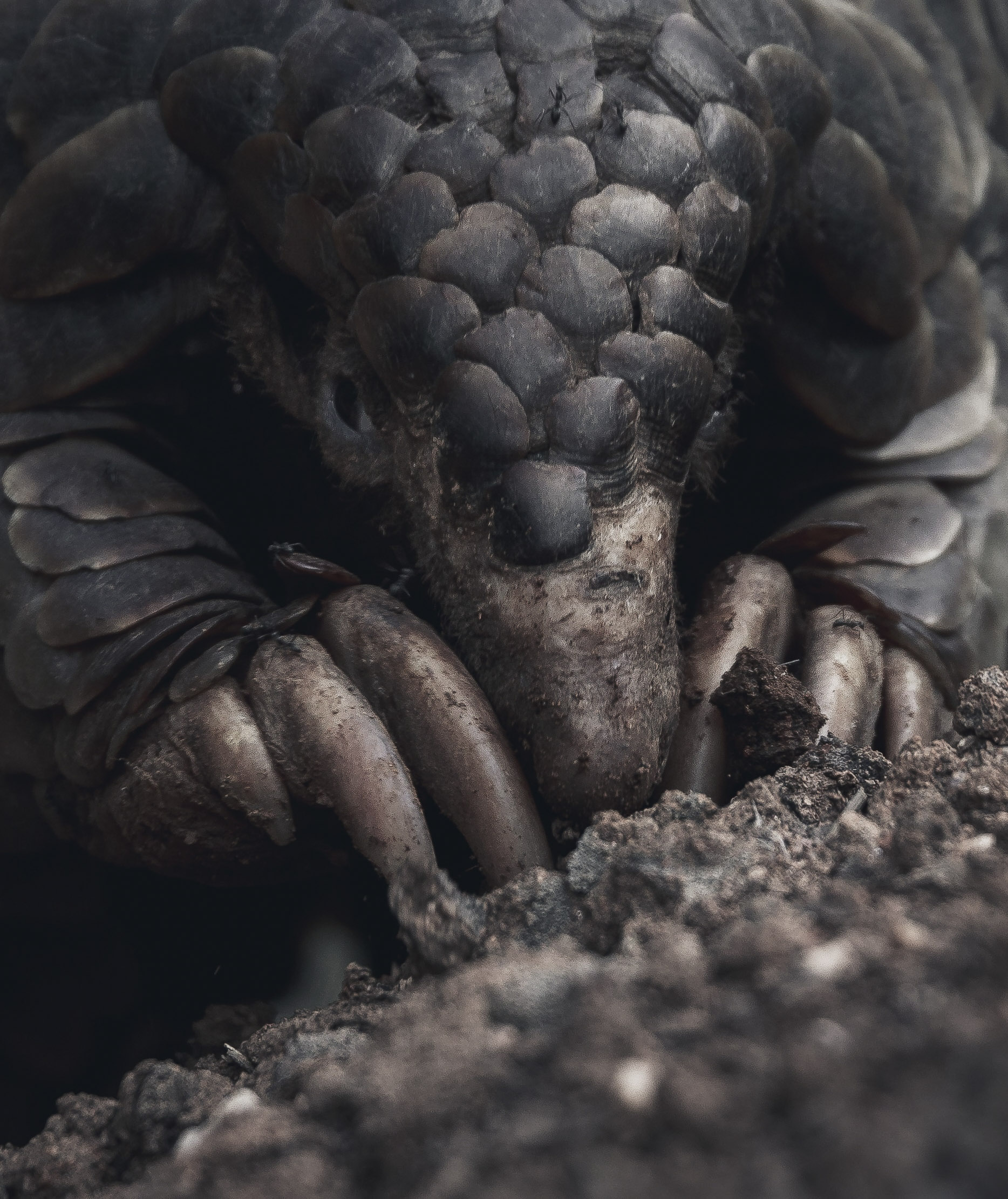
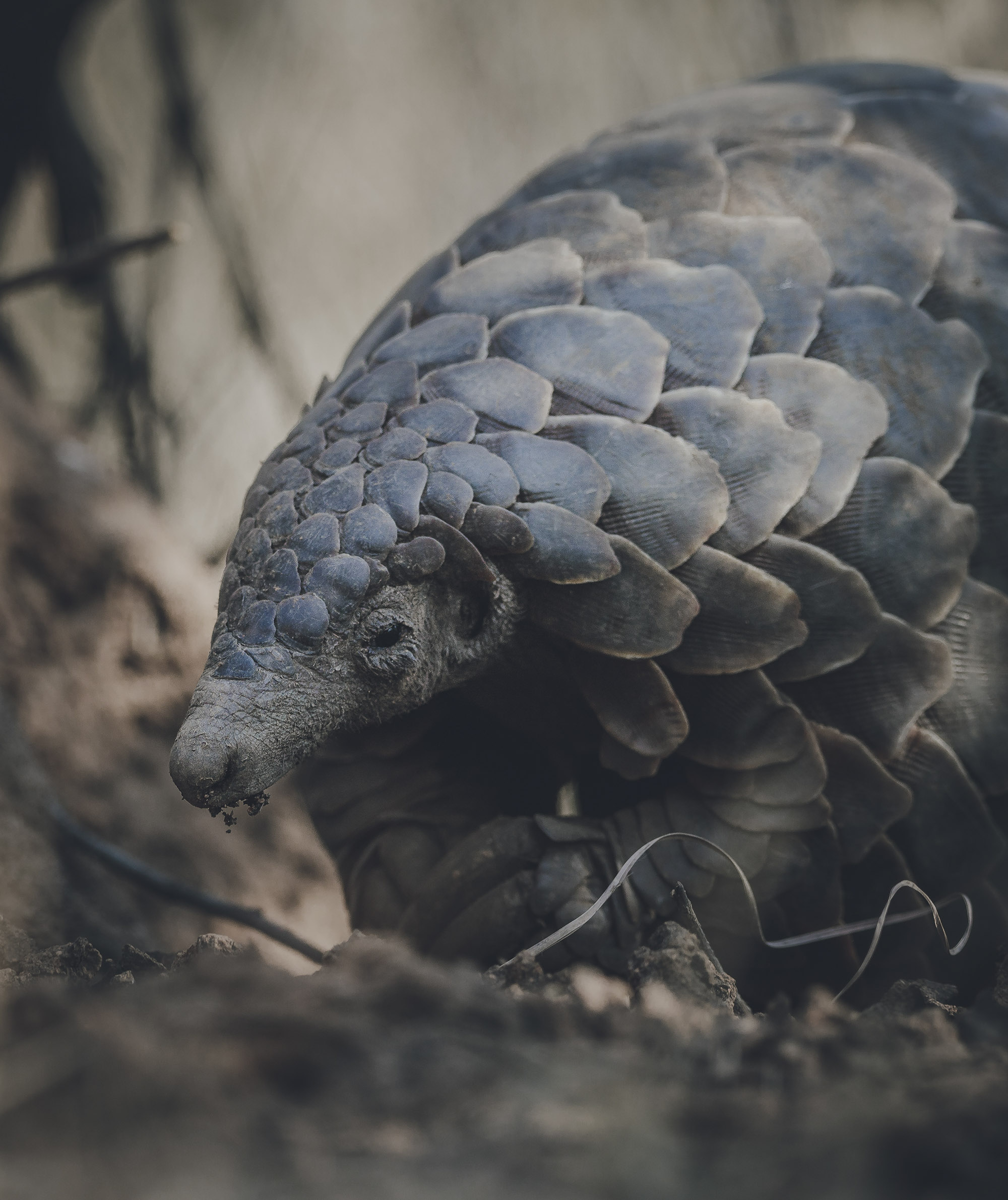
African Pangolins are among the most trafficked species in the world. © Gareth Thomas
Why is the Pangolin trade so much higher in rural market hubs than in cities? Is it purely because of the proximity to habitat?
I don’t believe that to be the case.All pangolins are sourced rurally and then transported to urban hubs such as cities and then moved to various destinations in Asia. Once they arrive, they are processed in large manufacturing centers. We need to bear in mind that pangolins are sourced locally in Africa and Asia for consumption, and sold as delicacy food items. Hence, we find them in rural markets close to their natural habitat where hunters source them.
In a previous interview, you said that some tribal leaders weren’t aware or perhaps willing to accept that Pangolins may go extinct. What are some ways the African Pangolin Working Group tries to overcome these misconceptions?
We have various educational programs more recently focussing on the rural youth via their schools. We have partnered with multiple organisations who have existing networks and educational programs within these schools and have started a pangolin comic book campaign to bring the plight of pangolins to the people on the grassroots level throughout sub-Saharan Africa.
As pangolins hold strong ties to traditional medicine and status, can the species be protected while also protecting traditional culture?
The use of pangolins in cultural practices in Africa is reasonably sustainable. Their use in Asia is entirely unsustainable. The belief that pangolin scales cure various medical ailments in Asia, particularly China, is not valid. This belief should be removed from cultural practice as it holds no substance. Pangolins cannot be afforded protection in China if this cultural “value” is maintained.
How crucial is APWG’s collaboration efforts with the South African government and the Johannesburg Wildlife Veterinary Hospital to oversee pangolin rehabilitation?
Our association with the South African government is critical, and our existence and success are based on this relationship. The JWVH is most likely the best wildlife veterinary hospital in the world that deals with and treats pangolins, and we are fortunate to have such a close working relationship.
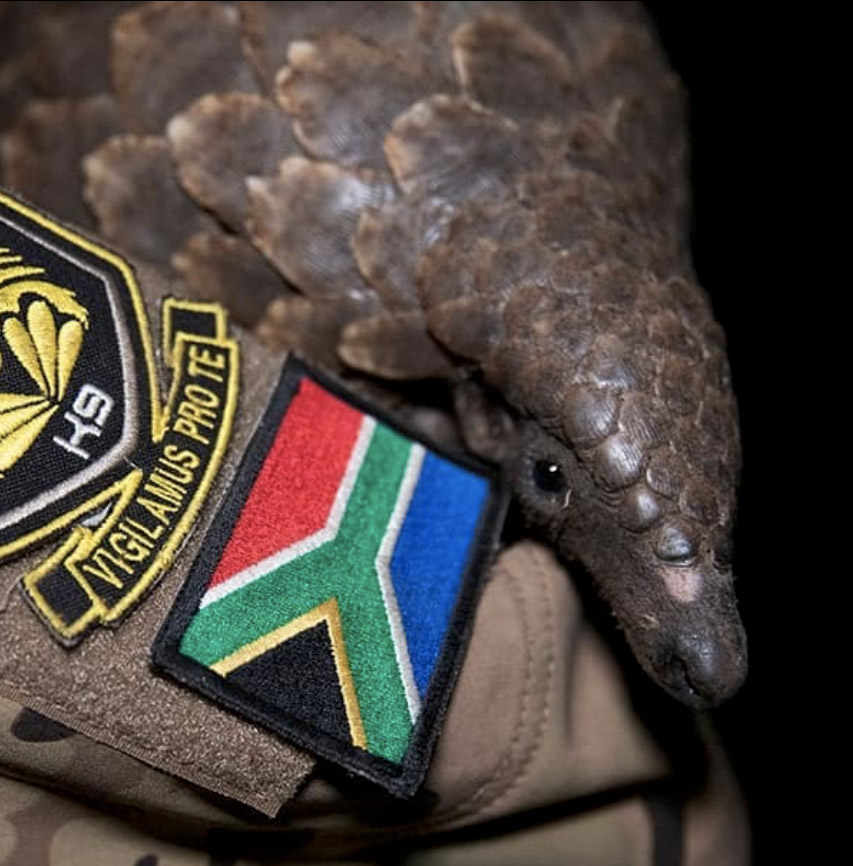
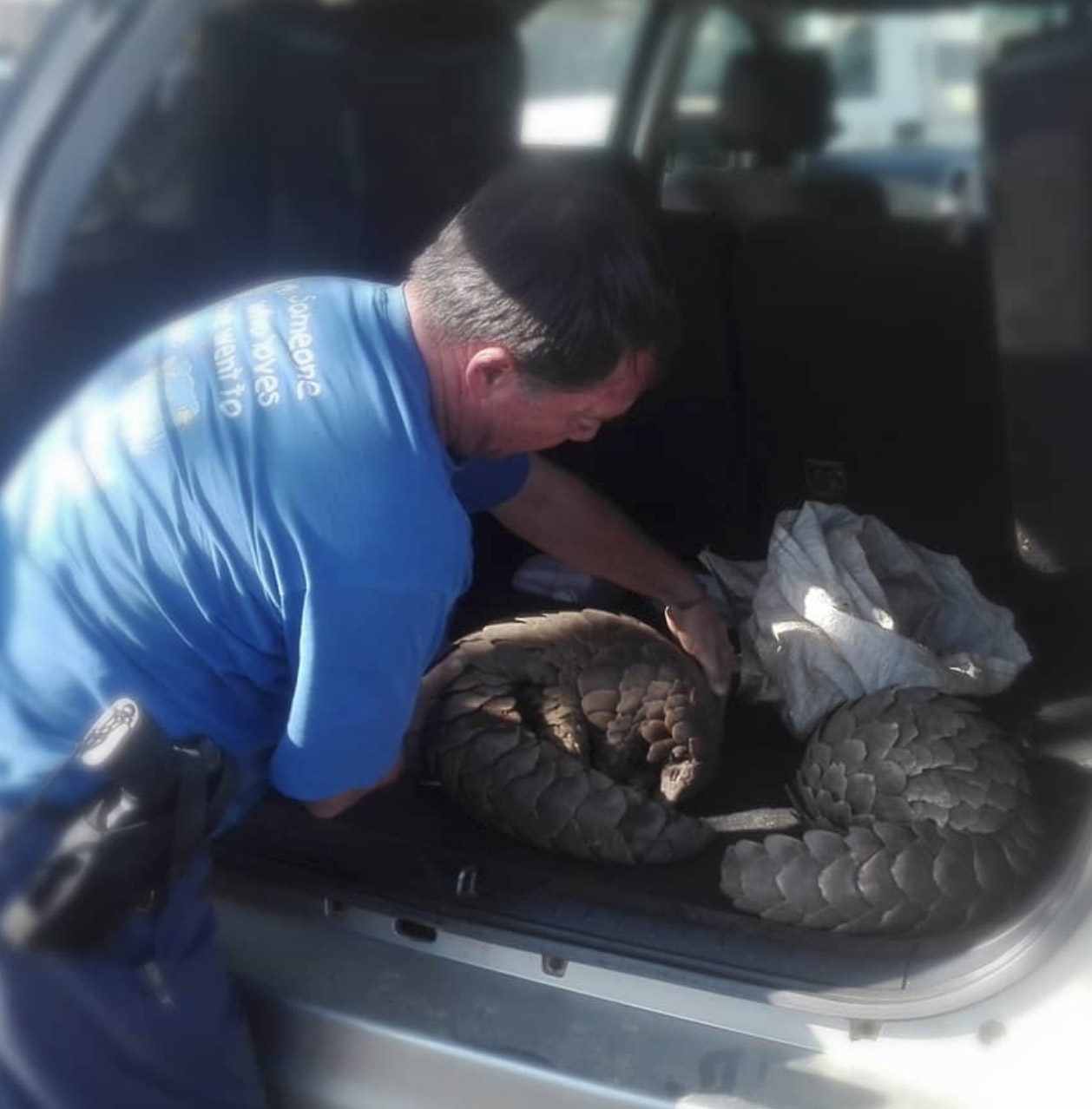
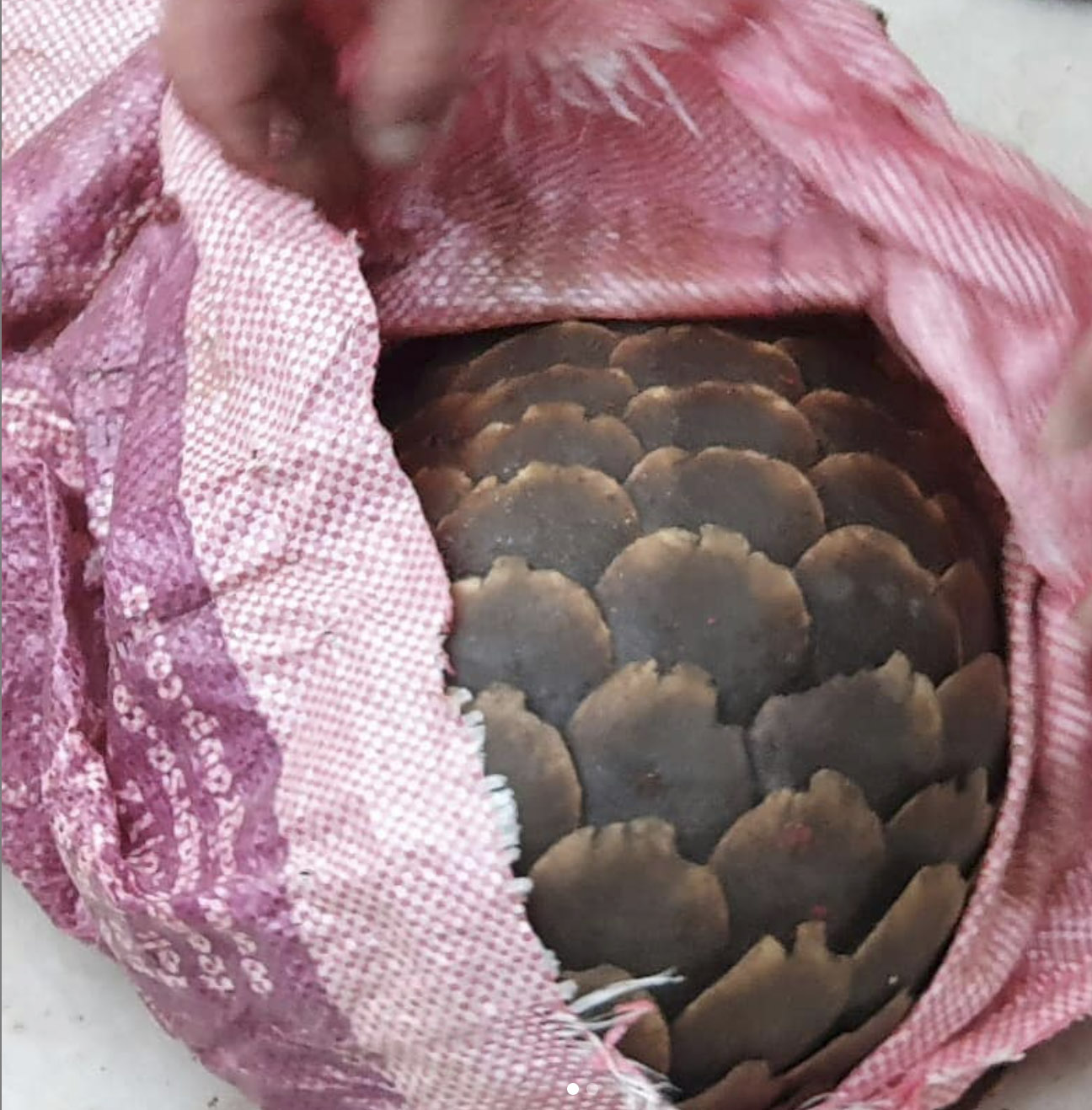
The African Pangolin Working Group conduct sting operations to retrieve illegally poached and trafficked Pangolins. © African Pangolin Working Group
READ THE AFRICAN PANGOLIN WORKING GROUPS STATEMENT ON THE NOVEL CORONOVIRUS (COVID-19) PANDEMIC AND A RESPONSE TO THE CALL ON THE TOTAL BAN ON GLOBAL “WET MARKETS”
Could you please describe a typical rehabilitation effort?
Once we’ve had a successful sting operation, we take the pangolin to the JWVH, and the team there assesses its condition. It is admitted to their ICU as all pangolins that come out of the illegal wildlife trade are compromised. Its stay in the hospital could be anything from a week or two to several months. Once discharged, it is transported to a suitable release location, usually a large reserve that falls within its natural distribution range. Then, the facilitated soft release process is initiated. This process involves getting the animal used to its new surroundings, determining if suitable food species of ants and termites are available, and has suitable burrows to rest in. The first few days involves walking the pangolin to feed, as was done in-hospital care. It is then left out but checked daily and weighed to assess condition for three weeks, later twice a week for three months and then once a week for up to a year.
How does APWG go about educating law enforcement authorities, and what would be the desired result?
We provide workshops around the country where we educate police officials, court officials such as advocates and magistrates, veterinarians, and interested landowners. We offer this service to neighboring African countries as well.
How effective has the Counter-poaching K9 pangolin detection programme been, and what is it’s potential in the future?
While our K9 unit has been involved in each operation, we still have not detected additional pangolins that may have been hidden. We now need to branch out into our ports and border posts to identify hidden pangolins within smuggling rings. It is still early days in this new initiative.
In terms of APWG’s research, your team has co-authored 12 scientific journal articles, what are some of the significant changes brought about by this vital research?
We have expanded our knowledge of the cultural use of pangolins in African tribal areas, which has been essential in estimating the local demand for pangolin products and how these products are used. We also have a better understanding of the species natural history and ecology, which is vital in the management of natural populations and essential in understanding the rehabilitation requirements for pangolins. The work we have done on their genetics is also crucial in noting differences between sub-populations and where genetic barriers are so as not to pollute natural populations with pangolins released into an area. The genetics have helped us identify certain pangolin products, from which species they originate. Now we need to work on their possible origins when retrieved out of the illegal trade.
